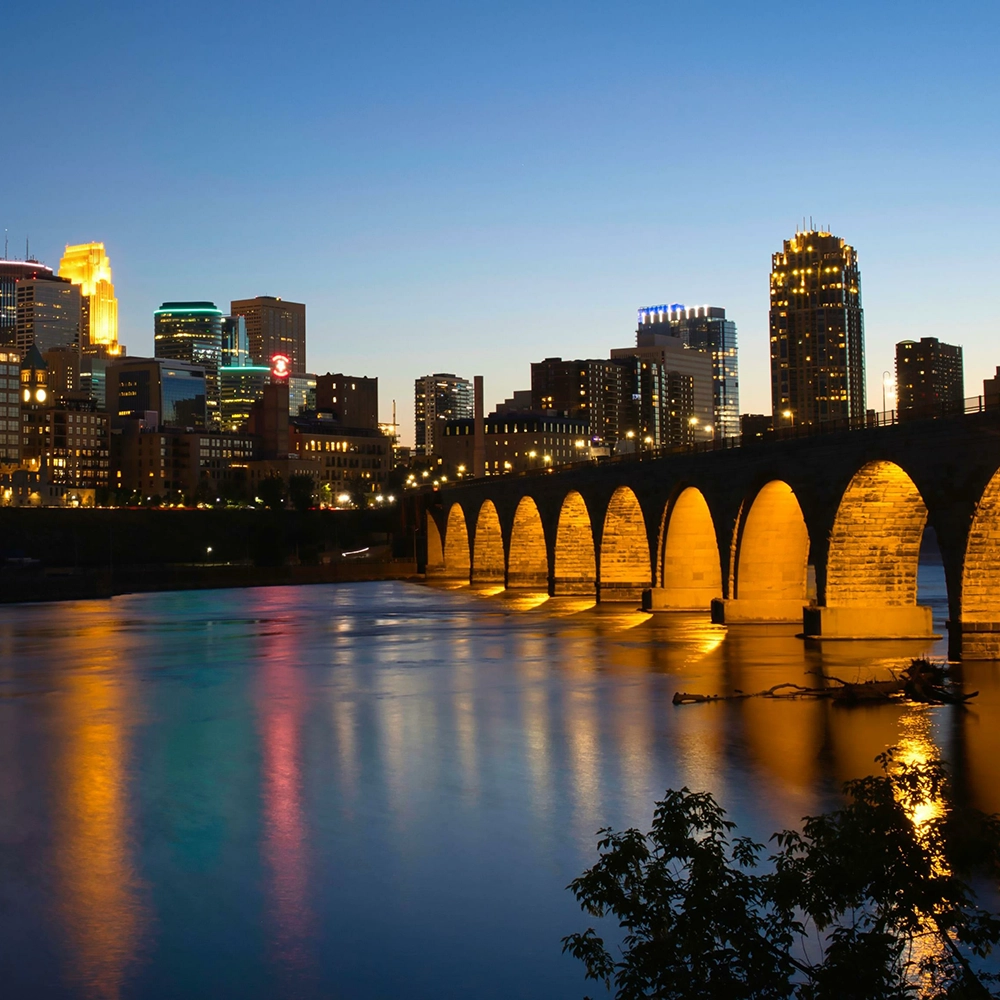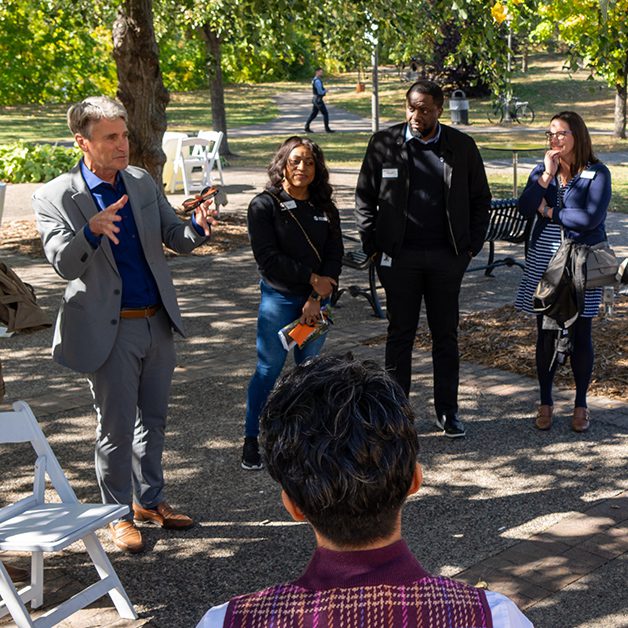Main Street Economic
Revitalization Grants

$18 million is available to grant
The Minneapolis Foundation, in partnership with LISC Twin Cities and Propel Nonprofits, is now accepting proposals for grants to support business recovery and economic development along the Minneapolis commercial corridors worst hit by the combined impact of COVID-19 and the destruction following the murder of George Floyd. Thanks to funding from the Minnesota Department of Employment and Economic Development’s (DEED) Main Street Economic Revitalization Program, $18 million will be distributed to projects in these corridors:
- Lake Street, from the Mississippi River to the Uptown neighborhood.
- 38th Street, from Bloomington Avenue on the East to Nicollet Avenue on the West.
- West Broadway in North Minneapolis, from I-94 on the East to Queen Avenue on the West.
Main Street grants will be distributed through a community-centered process, with significant guidance from local stakeholder tables that assembled along each of the business corridors in response to these crises. These tables, which are composed of residents, business owners, neighborhood associations, nonprofits, technical assistance providers, and lenders, have been responsible for identifying funding priorities, and they will review proposals and make grant recommendations.
Applications will be reviewed on a rolling basis, with grant awards beginning in Spring 2022. All funding will be distributed by December 31, 2024. Projects must be completed by December 31, 2026.
This grant opportunity is closed as of October 2022. Learn more about our second phase of funding.
What We Will Fund
Grants are available for predevelopment and design and hard costs related to actual construction. Funds cannot be used for the purchase of property or costs associated with the general operations of a business.
Eligible Expenses: Repair or renovation of real property, building construction, landscaping and streetscaping, predesign and design, engineering, infrastructure, related site amenities
Ineligible Expenses: Purchase of real estate, business operations or operating expenses, inventory, wages, working capital
Who is Eligible to Apply?
Projects must be located in one of these commercial corridors: Lake Street, the area around 38th Street and Chicago Avenue, and North Minneapolis’ West Broadway Avenue. Priority will be given to businesses and organizations that represent Black, Indigenous, or people of color whose projects will build wealth, create jobs, and stabilize communities along the corridors.
Eligible Applicants: Businesses and property owners, nonprofit organizations, developers (for-profit and nonprofit)
Ineligible Applicants: Local governments
Examples of Eligible Recipients
- A property owner whose building was damaged by fire and who wants to leverage their insurance proceeds to redevelop the property
- A business owner who has purchased their previously leased space and wants to remodel vacant space on the 2nd and 3rd floor for additional housing or offices
- A nonprofit agency that has purchased a vacant property and wants to develop it into a community-based small business incubator
- A developer that has purchased a vacant lot and wants to develop it into a mixed-use facility with commercial and housing space
Additional Requirements
Grant awards can cover up to 30% of an eligible project cost, up to $750,000. Projects must demonstrate that they have outside funding from sources such as public or private grants or loans, developer equity, or insurance proceeds. All Main Street grants must be matched with non-state and non-federal funds at a rate of 2 to 1. See this sample chart.
Projects must have secured commitments for all required matching funds and all required development approvals before a grant may be distributed.
Matching funds must be identified, committed, and restricted for use exclusively for this project. They must be secured within 15 months of the awarding of grant funds.
Any project receiving more than $200,000 in grants from or backed by the state must comply with prevailing wage requirements under Minnesota Statutes 177.41 through 177.44. More information can be found here.
Application Process
All applicants must complete a pre-application to screen them for eligibility, project readiness, and alignment with funding priorities. Local community tables along each of the business corridors will review the pre-applications and forward a list of recommended projects to the Minneapolis Foundation for further evaluation. All applicants will be notified within roughly four weeks if they have been chosen to advance in the process. Those that are recommended for funding will be invited to submit additional application materials. Projects not recommended for funding will be considered for alternative support and other technical assistance.
We will begin accepting pre-applications on March 31, 2022. This funding opportunity will remain open until all available funds have been expended.
All application materials must be submitted through the Minneapolis Foundation’s online portal. Applicants will need to create an account in the portal; we encourage you to log in early in the process to ensure that you have access to it. We also recommend that you download this preview document, which is designed to help you prepare your application.
This grant opportunity is closed as of October 2022. Learn more about our second phase of funding.
Questions
FAQs can be found here. If you have questions about accessing the online portal, please contact Grants Administration.
If you have questions about the guidelines or need other assistance in the pre-application process, contact Jo-Anne Stately, the Minneapolis Foundation’s Director of Impact Strategy – Economic Vitality. You can also watch a webinar featuring Jo-Anne Stately, Kate Speed, and Sarah Jackson, where they provide an overview of the grant guidelines and answer questions. Slides from the webinar can also be found here.

